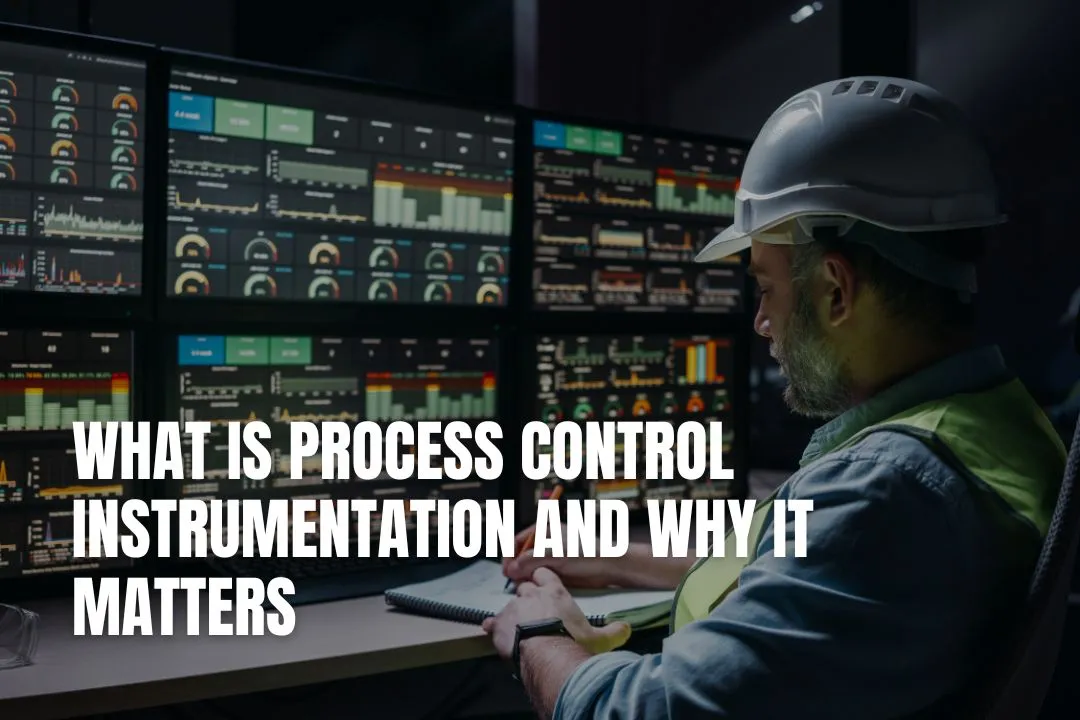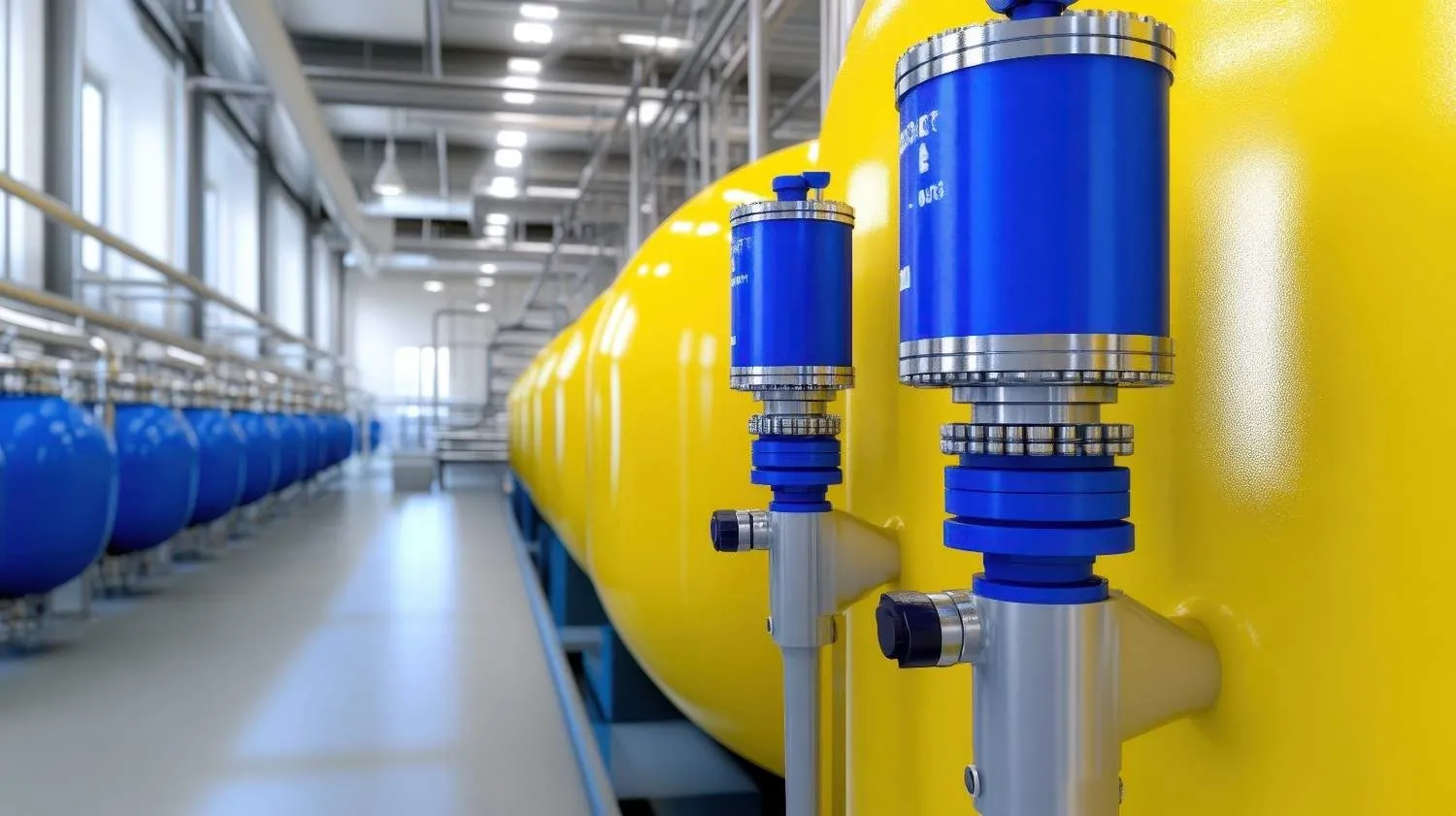
Editorial Disclaimer
This content is published for general information and editorial purposes only. It does not constitute financial, investment, or legal advice, nor should it be relied upon as such. Any mention of companies, platforms, or services does not imply endorsement or recommendation. We are not affiliated with, nor do we accept responsibility for, any third-party entities referenced. Financial markets and company circumstances can change rapidly. Readers should perform their own independent research and seek professional advice before making any financial or investment decisions.
In today’s modern industries, whether in manufacturing, energy production, or pharmaceuticals, operations run smoothly thanks to state-of-the-art technologies in automated systems working quietly behind the scenes. These invisible forces ensure that every process stays stable, efficient, and safe.At the heart of this automation lies Process Control Instrumentation (PCI), a network of sensors, transmitters, controllers, and actuators designed to measure and manipulate key physical variables (e.g., temperature, pressure, flow, and level) to achieve precise control over industrial processes. In essence, PCI serves as the nerve centre of industrial automation and manufacturing execution systems, shaping outcomes that directly influence safety, product quality, and overall economic performance.
At the heart of Process Control Instrumentation lies a fundamental principle known as the control loop, a continuous cycle of Measure → Compare → Adjust. In a closed-loop system, sensors first measure key process variables, the controller compares these readings to a desired setpoint, and actuators make the necessary adjustments to maintain stability.
Unlike manual control, where human operators must monitor and react to changes, automated loops and process control systems respond in milliseconds. This is essential for processes that are too complex, fast, or hazardous for human intervention.
Every PCI system rests on three essential pillars: measurement, control, and actuation. Measurement devices such as sensors and transmitters detect variables like pressure, temperature, flow, and level. Control units, including programmable logic controllers (PLCs) or distributed control systems (DCS), analyse the data and compute corrective actions, often using proportional-integral-derivative (PID) algorithms. Finally, Actuation components (e.g., control valves, motors, and pumps) physically execute these adjustments, completing the feedback loop that keeps industrial operations stable and efficient. Components are available through instrumentation manufacturers like tjwilliams.co.uk.
Process Control Instrumentation is far more than an engineering convenience. It’s a cornerstone of industrial safety, reliability, and profitability. From oil refineries to pharmaceutical plants, process control systems ensure that critical systems operate safely under all conditions. By continuously monitoring essential process variables like temperature, pressure, and flow, it can automatically trigger alarms or emergency shutdowns before a fault escalates into a catastrophic failure.
This real-time vigilance not only protects personnel and equipment but also keeps operations predictable and stable, reducing the risk of accidents caused by sudden fluctuations.
Economically, PCI drives efficiency (especially energy efficiency) and throughput. Advanced control systems help optimise energy use by keeping boilers, furnaces, and turbines running at their most fuel-efficient settings. And they minimise waste by ensuring that every drop of raw material is used effectively. These optimisations directly translate into lower costs and higher margins.
From a market perspective, PCI upholds product quality and consistency. Maintaining tight control over process parameters ensures that each batch meets precise specifications, whether it’s the purity of a chemical compound or the texture of a food product. Moreover, the accurate, time-stamped data gathered by instrumentation systems supports quality assurance and regulatory compliance, providing traceability and trust in every product delivered.

The impact of process control instrumentation spans virtually every industrial sector. In the oil and gas industry, PCI systems and automated control systems regulate high-pressure pipeline flow and temperature, often in remote or hazardous environments where human oversight is limited. Automated sensors and control valves ensure stable operation, preventing leaks, explosions, or environmental damage.
In manufacturing and robotics, process control systems provide the precision needed for mass production and batch automation. Food and beverage plants, for example, depend on controllers to maintain oven temperatures and conveyor speeds within exact limits, ensuring consistent quality and safety.
The pharmaceutical industry and biotech sectors rely heavily on PCI to maintain sterile conditions and control reaction temperatures with pinpoint accuracy. These are factors critical to drug efficacy and patient safety.
Even in water treatment facilities, PCI plays a vital role by monitoring chlorine concentration and regulating flow rates via flow diversion valves and analytical sensors, guaranteeing that every drop delivered meets strict public health and environmental standards.
As industries embrace Industry 4.0, process control instrumentation is evolving into a smarter, more connected ecosystem. Through the Internet of Things (IoT), Industrial IoT (IIoT), and artificial intelligence, instrumentation devices are now capable of seamless data exchange, enabling real-time insights across entire production networks. Modern 'smart' instruments go beyond basic measurement and manual temperature and pressure controls. They can self-calibrate, perform internal diagnostics and instrumentation processes, and even alert operators when maintenance is needed.
This evolution supports the rise of predictive maintenance, where data from sensors and controllers is analysed to forecast potential equipment failures before they happen. The result is a shift from reactive management to proactive reliability that maximises uptime and minimises costly disruptions.
From ensuring clean water and reliable electricity to producing safe medicines and quality consumer goods, Process Control systems stand as the silent workhorse of modern industry. It safeguards operations, optimises performance, and upholds the standards that make everyday life possible. Yet process control & instrumentation is more than just a collection of sensors and controllers. It’s the foundation of a modern, reliable, and safe industrial society.
As industries continue to evolve with digital transformation and artificial intelligence, the demand for skilled professionals like controls and instrumentation technicians and field service technicians grows stronger. To learn more, explore how career opportunities in industrial automation and process instrumentation (e.g., instrument technician) can help shape the intelligent industries of tomorrow.
It works on a continuous 'Measure → Compare → Adjust' feedback loop. A sensor measures a variable like temperature, a controller compares this reading to a target value, and an actuator, such as a valve, makes the necessary adjustment to maintain stability.
Automated systems respond in milliseconds, which is critical for processes that are too fast, complex, or hazardous for a person to handle. This rapid response improves safety, efficiency, and the consistency of your final product.
It directly boosts profitability by optimising energy consumption and minimising material waste, which lowers your operational costs. By ensuring every product batch meets exact specifications, it also protects your quality standards and brand reputation. For guidance on integrating this into your business, you might consider resources from Robinwaite.
You'll find it in almost every major industrial sector. It is vital in oil and gas for pipeline safety, in manufacturing for production consistency, in pharmaceuticals for maintaining sterile conditions, and in water treatment to meet public health standards.
The future is intelligent and interconnected. With the rise of Industry 4.0 and the Industrial Internet of Things (IIoT), instruments are becoming 'smart'. They can self-calibrate, perform diagnostics, and enable predictive maintenance to prevent equipment failures before they occur.